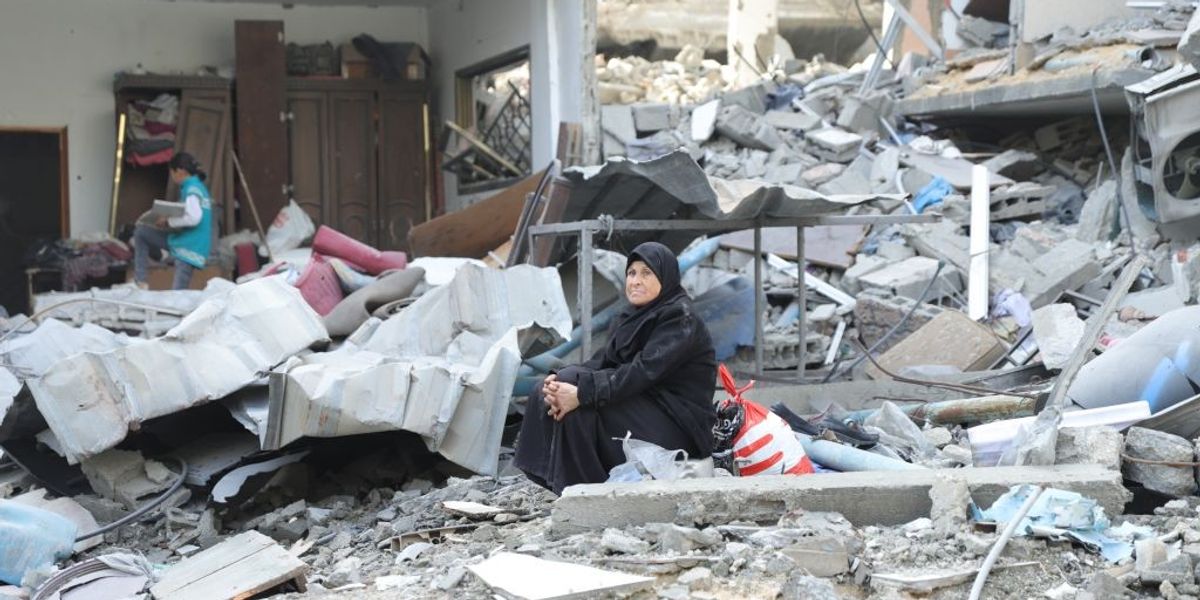When Human Rights Principles Are Abandoned at Zionism’s Altar

The Hypocrisy of Selective Outrage: Confronting the Double Standard on Israel
The Moral Blind Spot of Zionism
In the ongoing struggle for human dignity, voices rise against oppression—unless, it seems, the oppressor is Israel and the oppressed are Palestinians. This selective morality, where universal human rights become conditional, reveals a stark hypocrisy, especially regarding the war in Gaza. Here, the moral and legal principles upheld in other conflicts are conveniently disregarded to justify Israeli exceptionalism.
The issue isn't simply about facts; it's about the glaring inconsistency in how self-proclaimed human rights champions react when Palestinians are the victims. Modern Zionism, it appears, necessitates a moral blind spot, demanding impunity for Israel while vilifying anyone who dares to hold it to the same standards as other nations.
The Genocide in Gaza: A Reality Denied
"Genocide" carries immense weight, legally and morally. The 1948 Genocide Convention defines it as acts committed with the intent to destroy, in whole or in part, a national, ethnical, racial, or religious group. The focus isn't on a government's claims of targeting "terrorists," but on the reality of its actions.
Many legal scholars and human rights organizations argue that Israel's war on Gaza meets this grim threshold. The evidence is overwhelming: the systematic targeting of hospitals, the deliberate starvation of civilians through blockade, the bombing of designated "safe zones," the execution-style killings of children, and the chilling pronouncements from Israeli officials about making Gaza "disappear." Yet, acknowledging this reality seems impossible for some, as it would force a confrontation with the profound moral implications of their ideological commitments.
Defenders of Israel often resort to rhetorical maneuvers. Some argue that genocide is impossible because Israel is acting in self-defense. But self-defense, even if legitimate, doesn't justify the disproportionate slaughter of civilians and the intentional infliction of conditions that make survival impossible.
Others focus on casualty counts, suggesting genocide can't be occurring unless every single person killed was a civilian. This misrepresents international law. Genocide doesn't require the murder of every individual within a group; it hinges on the *intent* to destroy that group. In Gaza, that intent is undeniable.
Weaponizing Victimhood, Erasing Palestinian Suffering
Zionist exceptionalism demands exclusive victimhood. The suffering of Jews throughout history, especially in the Holocaust, is invoked to justify Israel's actions. Simultaneously, Palestinians are denied the right to articulate their own suffering. Comparisons to apartheid South Africa are dismissed as propaganda. Recognition of the Nakba, the 1948 ethnic cleansing of 750,000 Palestinians, is treated as an attack on Israel's existence. And when Palestinians use the term "genocide," they are accused of exaggeration, even as their families are wiped out and their neighborhoods are leveled.
This double standard is not accidental; it is central to modern Zionism. By portraying Jewish suffering as unique, Zionist narratives demand unconditional sympathy for Israel while actively erasing Palestinian suffering. Palestinians are expected to endure oppression silently; any resistance is labeled terrorism.
Exceptionalism and the Refusal to Engage
Critics of Israeli policies are often told they "don't understand the conflict," a condescending dismissal that implies only Zionist perspectives are valid. Human rights reports, legal findings, and international consensus are brushed aside as "propaganda." The evidence is ignored because it exposes Israel's culpability.
This intellectual cowardice is further revealed in the selective condemnation of oppression. Those outspoken against apartheid in South Africa, police brutality in the US, and persecution of the Uyghurs often fall silent when Israel is the oppressor. Their commitment to justice has a caveat: "Only when it doesn't challenge Zionism."
If apartheid was wrong in South Africa, it is wrong in Israel. If ethnic cleansing was wrong in Bosnia, it is wrong in Palestine. If genocide was wrong in Rwanda, it is wrong in Gaza. There is no principled way to support human rights selectively.
The Consequences of Moral Cowardice
The refusal to confront Zionism's actions erodes the credibility of those who engage in these double standards and enables Israel's impunity. Denying genocide, dismissing Palestinian suffering, and selectively applying international law legitimizes crimes against humanity.
The staggering scale of atrocities in Gaza further exposes this selective conscience. The death toll, the targeted killings of health workers and journalists—numbers that would provoke global outrage if attributed to other nations—are met with silence or muted concern. Where is the global solidarity for assassinated Palestinian journalists? This isn't a failure of awareness; it's a deliberate refusal to apply the same human rights standards to allies and adversaries.
This selective conscience undermines human rights advocacy. If principles are only defended when they align with Western interests, they are merely tools of power. This hypocrisy breeds cynicism, particularly in the Global South, where this selective application of justice is all too familiar.
A Choice Between Justice and Complicity
The crisis in Gaza has exposed a stark truth: for many self-proclaimed defenders of human rights, the value of a human life is conditional. This is an indictment not just of Israel's enablers, but of an entire industry that claims to stand for justice while remaining complicit in its violation. History will judge those who defend Zionism's oppression. The choice remains: embrace universal justice or cling to exceptionalism that erases the suffering of an entire people. One path leads to justice, the other to complicity. And history does not forget.